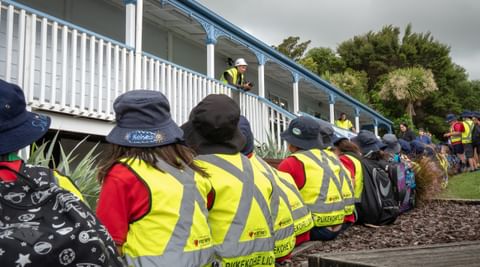
Community & Social Performance
Building strong relationships in the communities where we operate is important to us. We respect local cultures, listen and respond to community concerns, and aim to deliver shared value.
Engaging for Mutual Benefit
We are committed to fostering genuine and respectful engagement with communities that host our operations, suppliers, and local and national governments. Our goal is to have positive outcomes for both our business and host communities by creating socio-economic opportunities across our operating footprint.
Our External Affairs & Social Performance Policy outlines these commitments.



External Affairs & Social Performance (EASP) Management Approach
Our approach to EASP enables us to identify, plan and manage risks and impacts to local communities, and identify opportunities where our operations can align with local aspirations, values and cultures.


